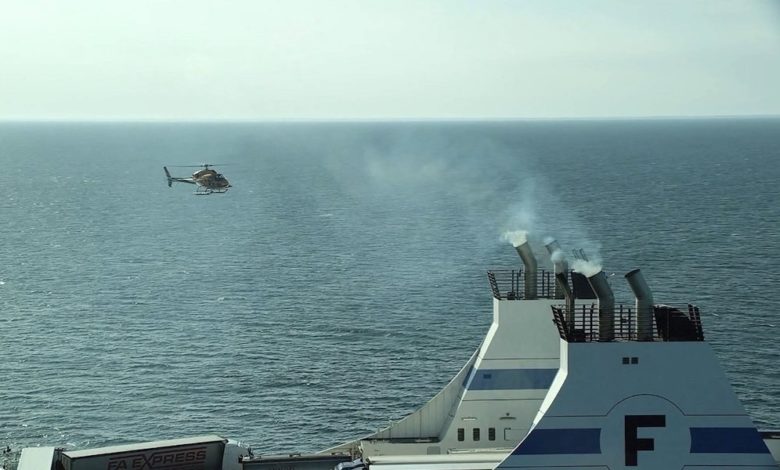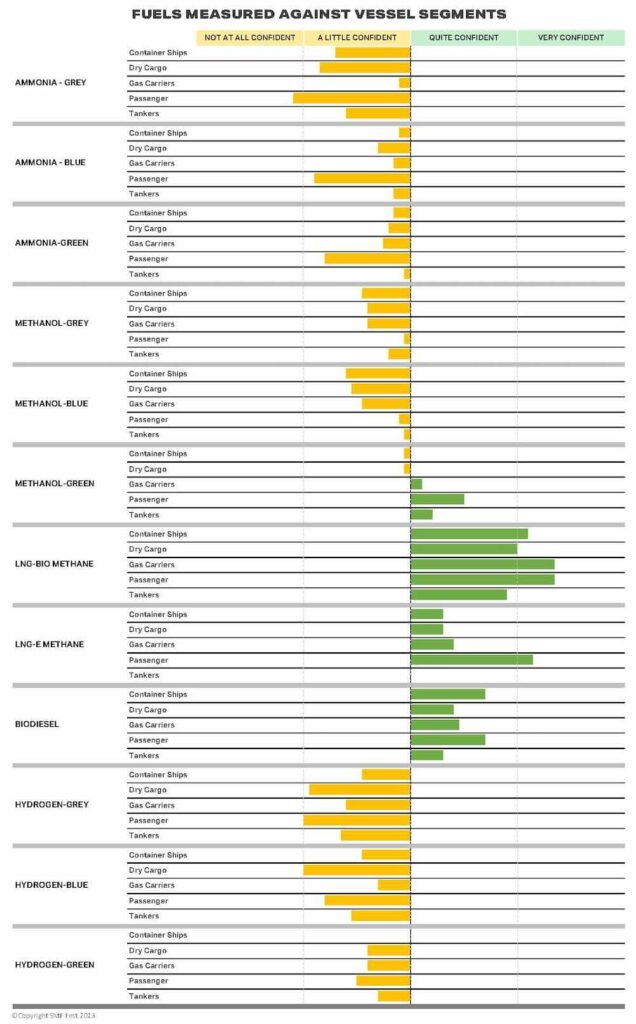Methane slip from gas-fuelled ships back in the spotlight

Within the space of a week there have been three future fuel reports with very different takes on today’s controversial leading alternative fuel, LNG.
Likely grabbing the most headlines is an 80-page report from the Washington DC-based International Council on Clean Transportation (ICCT) which claims real-world methane emissions from LNG-fuelled ships are higher than current regulations assume.
Policymakers have been urged to consider increasing the default methane slip value to at least 6% for the most common LNG engine on the back of the ICCT study which is based on data collected by drones, helicopters, and onboard sensors during the two-year Fugitive and Unburned Methane Emissions from the Ships (FUMES) project, a collaboration between the ICCT, Danish emissions monitoring firm Explicit, and the Netherlands Organization for Applied Scientific Research (TNO).
The authors of the FUMES report claim it contains the most comprehensive dataset of real-world methane emissions from LNG-fuelled ships to date, including methane slip from engines and fugitive methane emissions from LNG cargo unloading operations. Methane slip is the proportion of LNG fuel, which consists mainly of methane, that escapes unburned from the engine. Real-world methane slip measured in the plumes of 18 ships using the most common type of LNG marine engine – the LPDF 4-stroke engine – averaged 6.4%, whereas EU regulations currently assume 3.1% methane slip and the International Maritime Organization (IMO) assumes 3.5%.
The report therefore recommends that EU and IMO policymakers consider increasing the default methane slip value for LPDF 4-stroke engines to at least 6%.
“If methane slip assumptions remain too low, shipowners will be able to use LNG in high-methane-slip engines longer, effectively getting an unfair advantage over lower-emitting fuels and engines,” said Dr Bryan Comer, lead author, and director of the marine program at ICCT
Other results from the study show that methane slip and work-specific NOx emissions were highest at the lowest engine loads.
Two other future fuel reports – both with links to the gas industry – have also been published in recent days. UK consultancy Thetius was tasked by SEA-LNG, a lobby group for LNG as a ship fuel, to develop an alternative fuels barometer. The study claimed LNG and biofuels stand out as today’s alternatives, while methanol and electrical are viewed as capacity-constrained, hydrogen and ammonia are deemed capable future fuels, while nuclear is seen as a moonshot.
Despite perceptions, most methanol today, according to the Thetius report, is fossil-fuel-derived grey methanol with high emissions while green methanol scalability is viewed as a significant challenge.
Commenting on the analysis, Steve Esau, chief operating officer at SEA-LNG, said, “While there is no silver bullet for 2030, it is pleasing to see a significant role for LNG in the short to medium term. This study highlights once again the need for immediate action if the shipping industry is to reach net-zero by 2050 – waiting is not an option. It is also clear that by 2050 deep-sea shipping will rely on multiple fuels, including LNG, as it transitions from a fossil fuel through bio to e-LNG. The lessons learnt from the introduction of LNG as a marine fuel will benefit all alternative fuels.”
Elsewhere, the Sustainable Marine Fuel Confidence Index has just launched, attempting to identify here-and-now gaps and challenges in the evolution of new shipping fuels.
The index aims to capture a moment-in-time view of how confident shipping and marine fuel industry stakeholders are that the key components required for maritime’s energy transition, such as technology and infrastructure, are already in place.
The index (results carried below) was created at the Sustainable Marine Fuel Fest and features notable LNG proponents such as GTT and The Society for Gas as a Marine Fuel among its backers.


So a study funded by a organization, with LNG in its name, determines that LNG is amongst the best options for future fuel.
“Quelle surprise!”
Just like all the studies funded by fossil fuel interests detrmine AGW/ACC is scam and CO2 isn’t a problem.